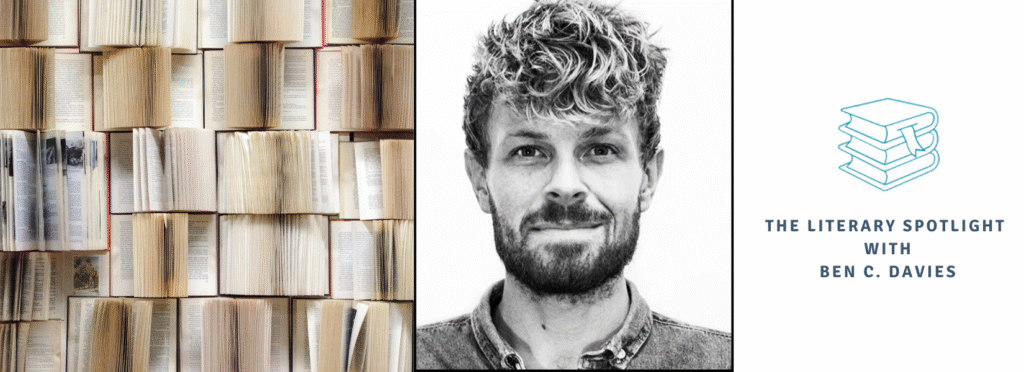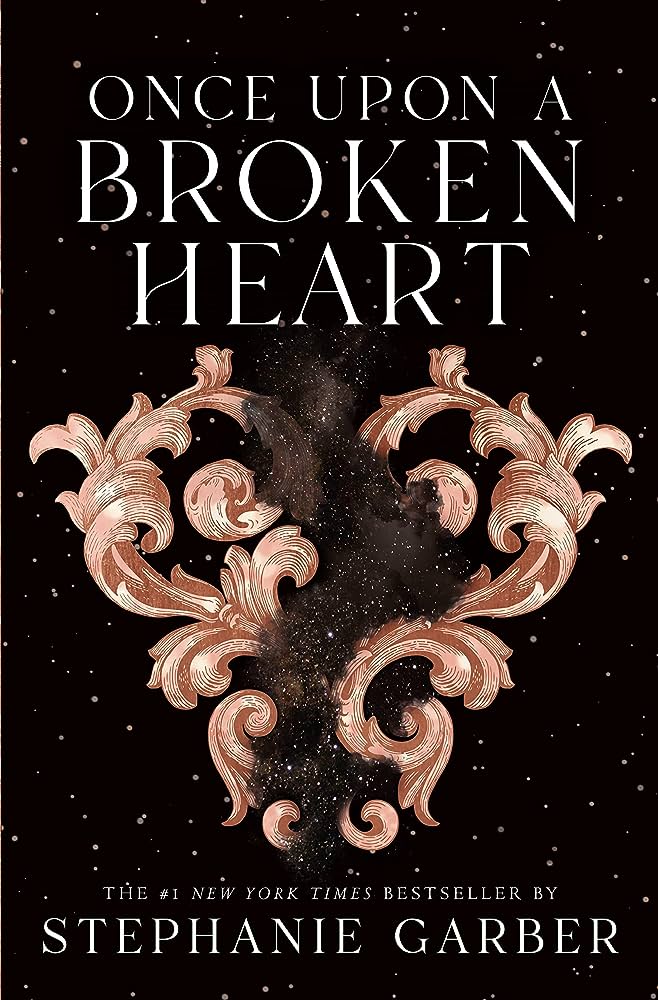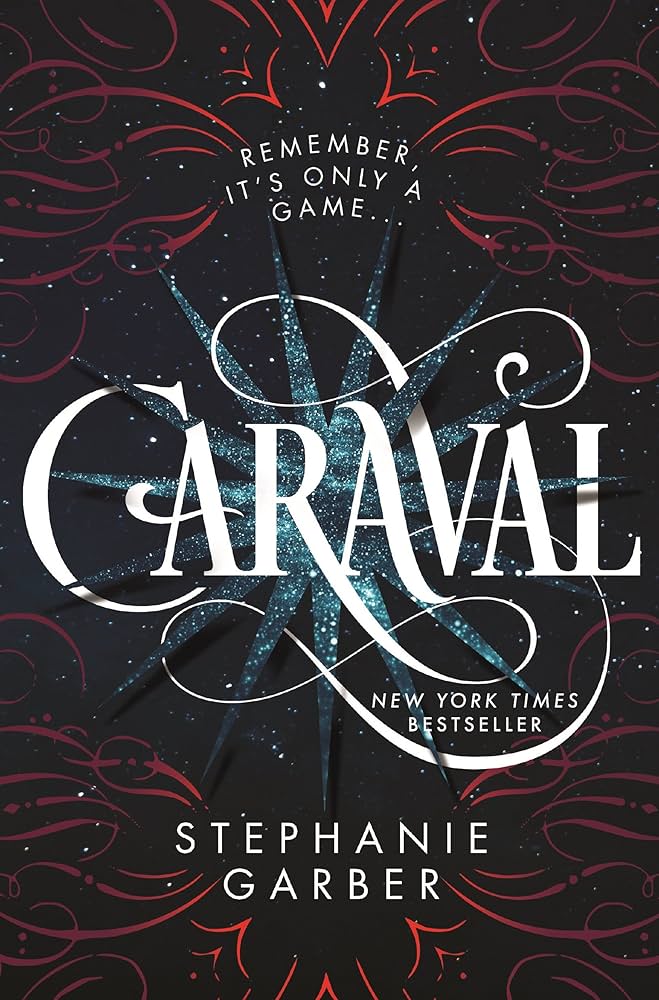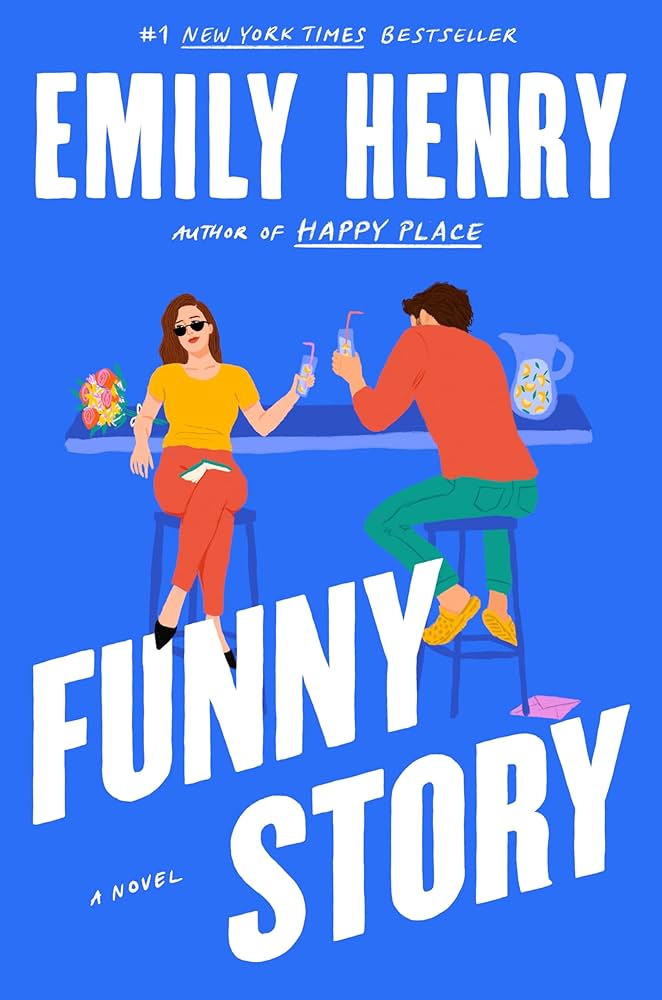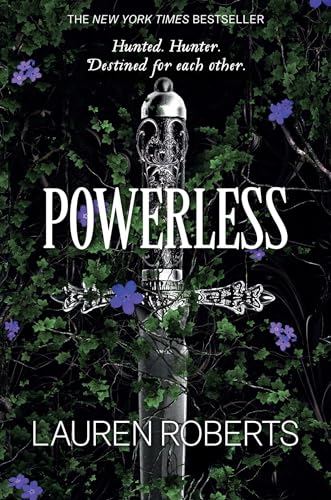Author Interview: The Literary Spotlight with Author Ben C. Davies
I’m so excited to welcome the insightful and thought-provoking author Ben C. Davies to The Literary Spotlight! Ben C. Davies is the author of And So I Took Their Eye, a compelling debut collection released on July 17 by Bridge House.
With a background that blends years of travel, humanitarian work, and deep creative introspection, Ben brings a distinctive voice to contemporary fiction. His stories weave together themes of power, justice, displacement, and human connection—each one steeped in emotional nuance and global resonance.
Before turning to writing full-time, Ben spent over a decade honing his craft, with the seed of his literary journey planted during a quiet chapter of his life in a remote Guatemalan village. Since then, he has developed a storytelling approach that emphasizes empathy, lyrical prose, and political undercurrents that challenge readers to reflect deeply. His experience as a publicist and founder of Studio Luce Books also gives him a multifaceted view of the literary world, combining behind-the-scenes expertise with a passion for supporting diverse voices.
In this interview, Ben shares the evolution of his writing style, the music and authors that inspire him, and the heart behind And So I Took Their Eye. He also opens up about the challenges of publishing, the joy of character creation, and the role of literature as a tool for empathy and transformation.
Let’s dive in and learn more about Ben and the stories he brings into the world!
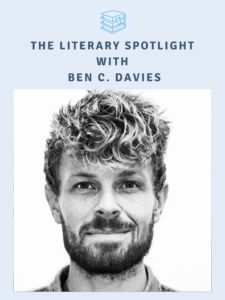
Introduction:
Cyra: Please introduce yourself and tell us a bit about your writing background. What inspired you to write, and how did your writing journey begin?
Ben: My name is Ben C. Davies, and my debut collection And So I Took Their Eye will be released on July 17 with Bridge House. There wasn’t a single moment when I decided I wanted to be a writer, but I’ve always enjoyed storytelling and carried ideas I wanted to explore.
About 13 years ago, I moved to a small village in Guatemala. At the time, tourism hadn’t reached the area, and apart from my work with a local non-profit, there wasn’t much to do. I’d surf in the mornings, but with no internet and no smartphone (how different to now), I had a lot of uninterrupted time. I started writing to fill those quiet hours, and fell in love with the process. The
first book I wrote back then was, admittedly, a bit of a mess, but it gave me such a desire to write more. This collection is the first I’ve published, but it’s the product of over a decade of writing.
Creative Process:
Cyra: Walk us through your creative process. How do you develop your ideas into full-fledged stories? Do you follow specific rituals or routines to get into the writing zone?
Ben: I’ve tried a few different methods, but generally I start with an idea and a clear sense of how I want the story to end. Rather than mapping everything out, I like to discover the story as I go. I get to know the characters through writing them, and that helps me understand their motivations and choices. I prefer to let the process unfold naturally without being too rigid or structured.
Music is a big part of that routine, as it helps me concentrate and get into the zone. I have a few albums I return to regularly. Instrumentals by Adrianne Lenker, Mia Gargaret by Gia Margaret, and the collaborative album by Thomas Bartlett and Caoimhín Ó Raghallaigh are my go-to soundtracks. I’m listening to that one now as I write this.
Writing Influences:
Cyra: Who are some of your favorite authors or literary influences, and how have they shaped your writing style? Are there any books or works that have profoundly impacted your writing career?
Ben: I used to believe that writing had to follow a formula. Early on, I was deeply influenced by Jonathan Coe, particularly his British political fiction, which shaped my initial understanding of storytelling. But that view changed dramatically as I broadened my reading and encountered a wider range of voices.
Fernanda Melchor, more than anyone, opened my eyes to a completely different way of writing. Her work was unlike anything I had read before—lyrical, yet brutal and utterly fearless. It gave me the freedom to try things I wouldn’t have dared attempt previously.
I also deeply admire Shehan Karunatilaka, whose work had a strong influence on this book. Ken Kesey’s Sometimes a Great Notion, too, remains a lifelong favorite, another brilliantly written novel that expanded my sense of what writing could be.
Challenges & Successes:
Cyra: What have been some of the biggest challenges you’ve faced in your writing career, and how did you overcome them? How do you handle writer’s block or periods of self-doubt? On the flip side, what achievements are you most proud of (books, projects, etc.) in your journey as an author?
Ben: Writing is often isolating and rarely comes with immediate validation. It demands enormous time and emotional investment, often with little external reward. Rejection is common, and recognition can be hard to come by. That’s why finding writing communities has been essential for me. I’ve been fortunate to connect with several supportive ones.
When it comes to achievements, I try to acknowledge milestones, no matter how small. Writers are always striving—more reviews, better publicity, a bigger next book—but it’s important to pause now and then. Look back at the goals you set ten years ago and see how far you’ve come. You might be pleasantly surprised.
Character Development:
Cyra: How do you develop compelling and relatable characters in your stories? Do you use strategies or exercises to ensure your characters feel authentic, genuine, and three-dimensional? Your novel weaves together a powerful cast of seemingly unconnected individuals. How did you approach building such a diverse and complex range of characters?
Ben: This collection and its characters emerged from a mix of influences—some rooted in personal experience, others shaped more by theme or structure. Because the stories are connected, I had the space to focus more deeply on the characters and let their arcs unfold across the book. Many of the characters are drawn from people I know or have observed, but I often push certain
traits, behaviours, or experiences in unexpected directions, sometimes to the extreme. It’s a kind of experimentation, imagining how someone might react in a specific moment and letting that response guide the direction of the story.
Plot/World Building:
Cyra: How do you approach plot building to balance intricate twists and maintain a cohesive storyline when crafting your novels? Can you share any tips for aspiring writers on developing compelling plots? World-building is crucial for many genres, creating immersive settings that feel authentic and integral to the story.
Ben: As mentioned before, I don’t plan much in advance. Usually, I start with a central idea and a sense of how it ends, and I figure out the rest as I write. I’ve found that outlining too much can take the fluidity out of my writing and cause me to miss unexpected opportunities. Knowing the endpoint is enough; it gives me direction without locking me in. When it comes to world-building, I focus more on voice and character than on intricate details. If you understand who’s telling the story and why, the world around them tends to come into focus naturally.
Dialogue and Setting:
Cyra: Dialogue can breathe life into a story, especially when intertwined with the setting. How do you use dialogue to enrich your settings and evoke a sense of place? Your book spans continents, each location steeped in its own history, culture, and emotional tone. How did you use dialogue to capture the distinct voices and rhythms of these diverse settings? What was your process for researching and authentically recreating the atmosphere and cultural nuances of each place to make the world feel so vividly real?
Ben: Each story in the book approaches dialogue differently. These choices were deliberate, shaped by the narrative voice and the tone I wanted to convey, alongside my awareness of writing as a white male looking in. I was conscious of the power dynamics and responsibilities that come with portraying voices and experiences outside my own. Rather than attempting to speak for anyone, I
aimed to listen closely, approach each character with empathy, and create space for their stories to unfold on their own terms.
Given the global scope of the stories, capturing distinct voices comes with inherent challenges, so I focused on maintaining internal consistency and tone within each narrative. I researched extensively and have spent time in all of the settings featured in the book. That immersion helped me develop a style that reflects each character’s background while, I hope, remaining both
respectful and coherent. It was the most challenging aspect of the book, and one I grappled with throughout.
Creative Inspiration:
Cyra: Where do you find inspiration for your stories? Are there any specific themes or topics you enjoy exploring in your writing? Did your personal experiences change the way you approach creating characters and storylines?
Ben: I know some writers disagree, but I believe strongly in politically driven fiction. Of course there’s a fear of being didactic, or even pretentious, but I see literature as a vital tool for empathy. It offers a window into other lives and experiences, and it has the power to challenge assumptions and expand understanding.
This belief is always present when I write, shaped by personal experiences that have influenced my worldview over time. Every story in this collection is rooted, in some way, in lived
experience. For me, fiction is a way to process those moments and share them in a form that might resonate with someone else.
Editing & Revision:
Cyra: How important is a writer’s editing and revision process? Please share your approach to editing your work. Do you have any suggestions for writers to improve their attention to detail and editing skills?
Ben: I start editing on my laptop, but I catch the most when I print the work out. Something about reading it on paper makes errors stand out more clearly. I also read the work aloud, which helps me hear the rhythm and catch awkward or off dialogue.
Publishing & Marketing:
Cyra: What has your experience been with the publishing industry? What is the culture like? Do you have any advice for aspiring authors on finding agents or publishers? How do you navigate the world of book marketing and promotion? Do you have any tips for authors looking to build their audience and niche?
Ben: I work as a publicist for other authors through my company, Studio Luce Books, so I’ve seen many sides of the industry. It’s a tough landscape, with more competition than ever across traditional publishing, indie presses, and self-publishing. I’ve written two books that will probably never be published, but they taught me a great deal and helped me grow as a writer. No time spent writing is ever wasted, even if the work doesn’t end up on a shelf.
For new writers, I always recommend starting with short stories. They’re a great way to develop your craft and get your work out into the world. Submitting to magazines and journals can help you build a track record, which is valuable when you’re ready to approach agents or publishers. Focus on improving your writing and building up your list of publications. Don’t rush the process; only pitch when you and the work are truly ready.
Personal Insights & Reflections:
Cyra: Beyond writing, how do you balance your personal life with your career as a successful author? What does success mean to you as an author, and how do you define and measure it? What is the most rewarding and fulfilling aspect of being an author for you? Is there a particular book or project you are most proud of?
Ben: I have a two-year-old, so finding time to write can be tough. But sneaking in a few hours before he wakes or during his naps is my best chance these days. Balancing writing with my publicity work is challenging, especially since I’d love to be writing all the time. It’s my happy place, so I’m always looking for ways to carve out more time for it, even though it’s not easy.
When it comes to success, like I mentioned before, it’s hard not to always want more. But every stepping stone is a success in itself. If you can live a life where writing time is embedded, that’s success enough for me, or at least it should be.
Advice for Budding Writers:
Cyra: What advice would you give aspiring authors just starting their writing journey? How do you handle rejection and criticism in the publishing world and literature?
Ben: Don’t write if you don’t enjoy it. If you’re doing it for applause or status, it won’t bring you the fulfilment you’re looking for. The truth is, you are the person who cares most about your book, so you need to enjoy the process of writing it, otherwise, it’s really not worth it.
Impact and Connection:
Cyra: And So I Took Their Eye tackles themes of justice, power, and morality across a web of global stories. How do you balance the darkness of betrayal, vengeance, and inequality with the deeper human emotions that tie your characters together? What lasting impact do you hope readers walk away with after witnessing these interwoven journeys?
Ben: We are living in an incredibly fraught political moment, and witnessing the treatment of immigrants and refugees in the US is nothing short of a disgrace. It’s both heartbreaking and horrifying to see policies and attitudes that strip people of their basic human rights unfold so openly. This book is just one tiny voice in that much larger, ongoing conversation, and I know it
will mostly be read by those who already care deeply about these issues. Still, I hope it can reach beyond that circle and inspire greater empathy and understanding.
More than anything, I want this book to prompt readers to check themselves, to hold up a mirror and honestly reflect on their own assumptions, biases, and behaviours. Literature has the unique power to open those cracks where change can begin. For me, writing this book has been a continuous journey of self-reflection and reckoning, forcing me to confront and question some of my own actions and beliefs. If it can have even a fraction of that impact on someone else, then it
will have fulfilled its purpose.
Personal Touch:
Cyra: Can you share a fun fact about yourself that readers might not know? Do you have any hobbies or interests outside of writing that influence your stories?
Ben: As I mentioned, I lived in Guatemala for four years helping run a small non-profit, and I still visit regularly as I now co-run a writing residency called Studio Luce. The residency was born out of a desire to make a positive impact on tourism in the village where it’s based—a place that appears, in a darker and more twisted form, in the book. We also offer scholarships for Guatemalan artists and writers, so please feel free to reach out if you’re interested. Our goal is to genuinely support Guatemala’s artistic community. The country has given so much to me, and this is my way of giving back, even if only in a small way.
Community and Networking:
Cyra: How can readers stay connected with you and keep up with your latest work?
Ben: You can find me on Instagram and Substack, @bendaviesauthor, as well as my website, bendaviesauthor.com.
Favorite Quote:
Cyra: What’s your favorite quote that keeps you going?
Ben: I recently visited Jack London’s house in Glen Eyre, and it was so inspiring (and sad). One quote that stood out among many was: “You can’t wait for inspiration. You have to go after it with a club.” — Jack London.
Future Projects:
Cyra: Could you give us a sneak peek into any upcoming projects or books you’re currently working on? Is there anything else you want to share?
Ben: I have a novel set in Guatemala that I’m currently pitching. It explores the disruptive forces of tourism,
political corruption, and Western expansion on a rural village struggling to hold onto its soul. I’ve also
just begun a new project, one loosely centered around the American Dream and everything it entails.
